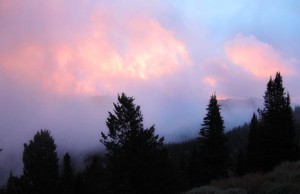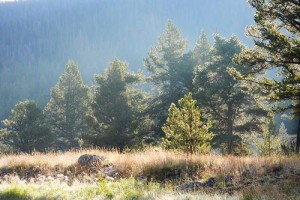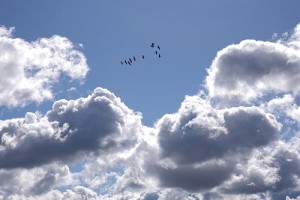
Finding God in Nature Part 1
And so it starts again. Each year around this time, just before springtime, I find myself chomping at the bit, ready to reconnect with nature and the woods. Throughout the spring and summer I will rebuild my mental and physical strength, and come autumn I will be once again focused and ready for the great hunt. But the cycle always begins around this time. Some call it “spring fever,” but for me it’s just a long-awaited reunion. Outside or inside, I’m at home. But too much time inside leaves me quite homesick for what I consider my real home.
The recent cold snap has kept me indoors lately, but like a good student of nature I’m preparing myself by reading some of the great literary masters like Alan Watts and Emerson. I’ve always admired and revered the writings of Thoreau as well. But it is Thoreau’s predecessor, Ralph Waldo Emerson, with whom I feel a kindred spirit. Here’s Emerson’s back story:
Emerson was born in 1803. He was a brilliant man who studied at Harvard College at the age of fourteen. He was also a pious man who attended Harvard Divinity School in 1825 and became a religious pastor in 1830, a year after marrying the seventeen-year-old Ellen Louisa Tucker. In 1831 his young wife died, leaving Emerson and his faith in shambles. Unable to reconcile his conventional faith, he headed off to Europe where he met up with some other naturalists and started the movement known as transcendentalism. Following his newfound enlightenment, he spent the rest of his life writing about individualism and the art of living in harmony with nature. His most famous work is simply entitled Nature.
The basis of transcendentalism is the melding together of nature and God and common sense. It is not a strict “religion” per se, but similar to Eastern Zen in that it is a way to balance yourself. Think of it as a religious parachute. If for whatever reason your religion leaves you feeling a little unfulfilled, don’t despair, you can always find God lurking in nature; nature being the entire universe from the dirt to the trees to the ocean to the clouds to sun to the stars.
Humans are strangely compelled to search for God and meaning all throughout life. Some humans are compelled to enter into a direct relationship with a human-like being who is God, while others only need to find a little objective truth oozing out of their existence. Either way, the path toward God and goodness is a path towards nature, and away from evil and materialism.
In today’s Sunday-school lesson…uh…I mean thoughts on nature, I’d like to end with a quote by Emerson that has stuck with me for some time:
…let him look at the stars. The rays that come from those heavenly worlds will separate between him and vulgar things.
This quote sticks with me because of my own personal observance that my annual assimilation into nature rejuvenates my spirit, answers my deepest questions, and makes me a better person. I always come out of the woods with more patience, love, and understanding than when I went in.
As a general rule, evil doesn’t exist in nature. Nature is always neutral. It has no soul or mind; it’s simply an environment and set of physical laws. Evil is a man-made concoction created when we act upon selfish impulses. Now, humans aren’t inherently evil. After all, we are nature ourselves and therefore can’t be inherently evil. But unlike nature, we have a consciousness, and a consciousness allows us to make good or bad decisions. Therefore, we are not neutral. To do good or evil is always a decision that we are responsible for.
Now, the premise of this article isn’t to suggest that people in nature won’t make bad decisions, but only that that a person in harmony with nature will make better decisions. He makes better decisions because nature inspires goodness.
The danger that modern society faces is that he is drifting further away from nature with each generation. And the further mankind gets away from nature–through selfishness, busy-ness, technology, or other distractions–the further he gets from goodness.
Finding God in Nature: Part 2 of 3




